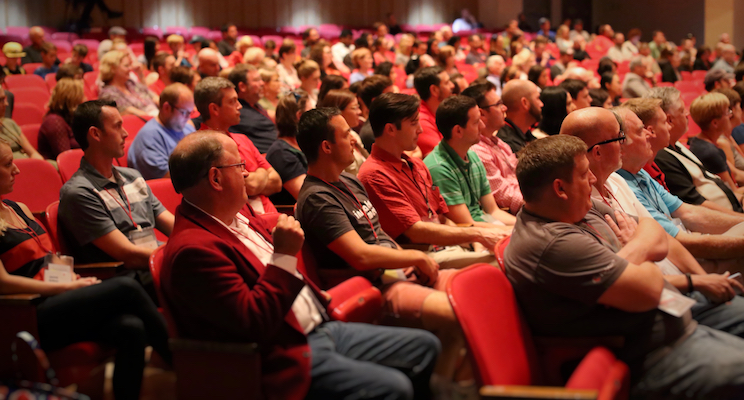Hello Conference Season! Good bye money and value… Most of you are going to waste a lot of money as the conference season gets into full swing. Why? Because too many conferences are still tied to a traditional model fit for the twentieth not the twenty-first century.
A bad conference provides data. A mediocre conference offers information. A good conference contains knowledge and, yes, an entertaining time. A great, but rare, conference yields wisdom and fulfillment.
To improve the quality of conference outcomes, just search the Internet for advice and you’ll find listicles of a type such as “10 Reasons Why Your Conference Sucks” or “Seven Signs of a Successful Conference,” which suggest attention to such details as available parking, wayfinding signs, good food, toilet breaks, greeters and so on. For some, the old model of conferences – great speakers, networks, like minded tribes, the parties – just need to be updated with more relevant curated content and a more sophisticated and entertaining overall experience. If that is all we do, then conferences are terminally destined for ignominious irrelevance.
The core objective of a conference should no longer be focused on the information or the speakers. It should be on what attendees can conjure with the information and with each other. The central outcome of conference planning should now be the meaningful connection between attendees. After all, being together in a large group is less necessary than it used to be and less common in an age of remote working and modern technology.
Here’s a design structure for a new type of conference experience
- Deliver in advance the conference content and information. Why wait for the conference when you can already read the speaker’s book, watch the TED talk or peruse the essay? The conference planners should issue that material ahead of time and provoke thoughtful reflection to prepare people for the conference.
- Hold attendees accountable. If you are spending $2,000 to $3,000 I think it is reasonable for other attendees and yourself to expect you go willing to learn and prepared for what follows.
- Design a robust and flexible conference agenda framework of one-to-one and small group dialogue on issues arising from the conference content. These discussions can be facilitated by what would have been the formal speakers, as well as other facilitators, informal conversation catalyzers and the attendees themselves.
- Within this dialogue framework, provide a content and conversation guide enabling attendees to draw insight from these conversations and apply it to their context and experience and to share that. Ensure attendees are co-creators of their own learning and contribute to the learning of others. The conference should create insight, creativity and problem solving, not pretend to hand it out to a passive audience.
- Enable intersectionality in every way, where attendees encounter others in unexpected and unpredictable ways.
- Of course, add in a hefty dose of social time and entertainment. I’m no party pooper!
If you are still planning which conferences to attend this year, instead of those you could skip by accessing the information elsewhere, look for those that offer the opportunity to direct your own learning, to co-create knowledge and the event experience with other attendees, and to enable you to develop insights applicable to your work and to your life. And, by all means, aim to have a fun time.
If we are going to come together at a conference then it has to be special. Too often it isn’t. But the possibilities are rich and enticing. Let’s capitalize on that.

